Undoubtedly, Artificial Intelligence is impacting the healthcare industry, as chatbots in healthcare have become popular recently in this digital era. Businesses realize the benefits of these AI-enabled virtual agents for automating their routine procedures, and for providing clients with 24/7 attention in areas like marketing, client service, and payments.
Indeed, as one of the required fields of human life, healthcare is badly falling behind technological progress. While industries like hospitality, food, banking, or e-commerce are advanced and augmented with various technical solutions, healthcare mostly still sticks to the traditional method of doing things.
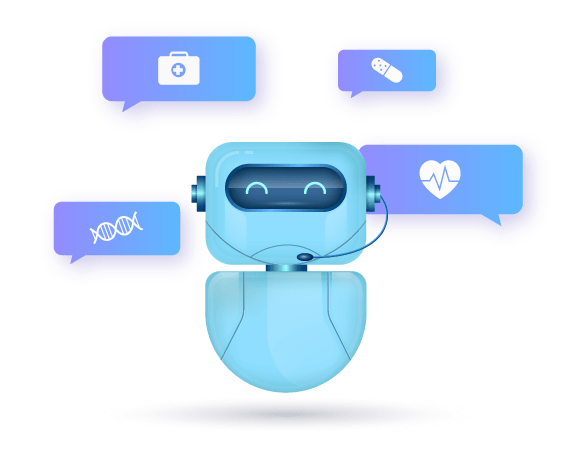 Currently, chatbots are also prepared to make a mark on the healthcare industry. According to Accenture, the AI health market will record a CAGR (compound annual growth rate) of 40% through 2021.
Currently, chatbots are also prepared to make a mark on the healthcare industry. According to Accenture, the AI health market will record a CAGR (compound annual growth rate) of 40% through 2021.
HEALTH AI MARKET SIZE 2014-2021
 Medical providers utilize different AI, such as machine learning or predictive analysis, to identify various problems. In addition, nowadays, an increasing number of them are seeking chatbots. Crunchbase did a survey and stated that investors had spent over USD 800 million across almost 14 recognized startups developing a health chatbot service.
Medical providers utilize different AI, such as machine learning or predictive analysis, to identify various problems. In addition, nowadays, an increasing number of them are seeking chatbots. Crunchbase did a survey and stated that investors had spent over USD 800 million across almost 14 recognized startups developing a health chatbot service.
In the healthcare industry, AI has come as a protector. From detecting diseases to using life-saving machines, AI is making robust new scopes in the healthcare industry across the globe. However, we still cannot say that devices could replace doctors’ appointments completely.
You must read this blog to understand Chatbots’ use cases, benefits, risks, and challenges in the healthcare industry.

What is the AI Chatbots in The Healthcare Industry?
In the medical background, AI-enabled chatbots prioritize patients and guide them in getting relevant assistance. In Addition, Chatbots are trustworthy, and provide precise substitutes for online searches that patients carry out when they want to know the exact reason for their symptoms.
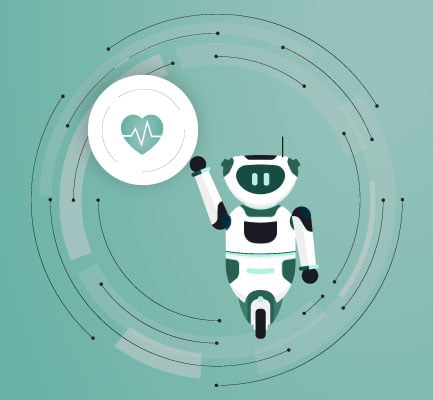
According to healthcare service providers, chatbots might assist those patients who are unsure of where they must go to get medical care. For example, numerous people are unaware of when their conditions require a visit to the doctor, and when it is a must to contact a doctor through telemedicine. Ordinary people are not medically trained to understand the limitations of their diseases. This is where chatbots play a very significant role and become a great help for those people. First, they accumulate original data from patients and depending on the input, they provide more data to patients concerning their conditions and recommend additional safety measures.
benefits and risks of chatbots are present in all cases, however, have you ever asked yourself, how do chatbots performn in healthcare? Let’s see.
How do Chatbots Perform?
Indeed, Chatbots utilize Natural Language Processing (NLP) technology. The NLP technology enables the voice recognition systems of Alexa, Samsung Bixby, Apple’s Siri, Microsoft’s Cortana, and many more to speech, text, write or understand efficiently. Moreover, they imitate human conversation through a user-friendly and interactive interface, either through a standalone application or a web application.
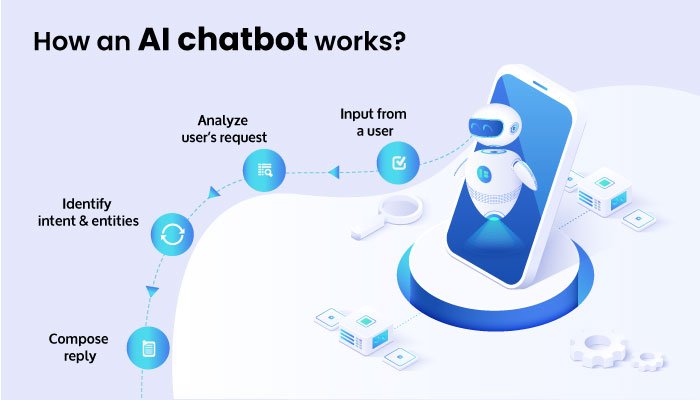
As a result, progress in the precision of Natural Language Processing (NLP) technology in this digital era implies that chatbots are advanced enough to be combined with ML (machine learning) and AI (artificial intelligence) to use in healthcare industry.
In this blog, we shall be discussing both challenges and benefits of AI chatbots, but first let’s look at the brighter side.
Benefits of Chatbots In Healthcare
Looking for the advantages of chatbots in healthcare, well, in this section we shall be going through exactly that.
1. Improved Accessibility
Most developing nations struggle to keep up with the fast-paced global technological advancements and have limited access to standard healthcare facilities and systems. As a result, for citizens of such a country, the risk of dying becomes higher. According to the World Health Organization (WHO), it is stated that life expectancy is strongly affected by income. In most impoverished nations, life expectancy is 18.1 years lower than the world’s most prosperous nations. Moreover, life expectancy at birth across the globe increased by 5.5 years, from 66.5 to 72.0 years between 2000 and 2016.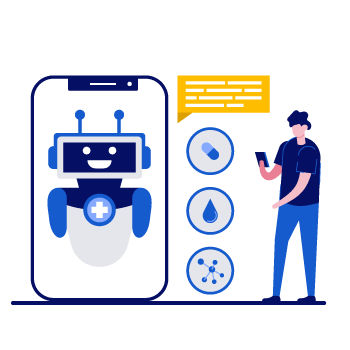
The Healthcare industry and patients can enjoy an efficient healthcare ecosystem with AI innovations. Also, AI-powered digital systems can facilitate patients in their regular treatments and diagnosis. In addition, there are many dedicated applications developed to help national and international healthcare organizations. Moreover, these apps can come together and render necessary assistance to people who need them.
2. Early Diagnosis
Nowadays, AI-driven tools rely on people’s data to assess patients’ previous and present health issues. By comparing the disease details, healthcare professionals are positioned to diagnose more precisely. The database in several healthcare mobile applications has computed millions of diagnoses and symptoms. But, more importantly, it can foretell the potential health issues an individual can encounter in the future.
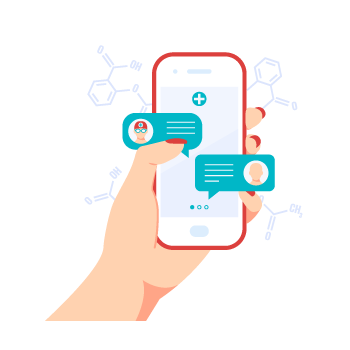
For example, Verily from Google is an application built to determine genetic and non-contagious genetic diseases. With such tools at their disposal, healthcare professionals can correctly foretell and prepare for possible threats in the future by taking the proper measures today. Likewise, healthcare industry facilities are now known for better operational management just because of predictive analysis. In addition to being benefits, this is also a top chatbot use cases in healthcare.
3. Reduced Costs and Increased Speed
By using AI Algorithms, healthcare processes are at a fraction of the original costs and are becoming faster and more efficient. From patient examination to diagnosis, AI has changed the game in terms of how operations are run, especially in regards to speed and costs. For example, AI can identify the biomarkers that suggest disease in our bodies. In addition, AI algorithms have minimized the manual work involved in specifying these biomarkers. Moreover, massive automation means acting faster, and as a result, the healthcare industry can now save more lives.
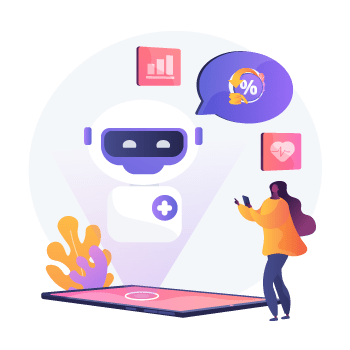
AI algorithms are cost-efficient in comparison to traditional methods. In addition, patients can take several trips to the laboratory with AI algorithms, which proves that prediction-based results are based on personal information. This is responsible for the increased implementation of AI globally, up to around 88% in the last year.
4. Unique Assistance in Surgery
Indeed, Artificial Intelligence application development has taken a massive leap in robotic applications. The scenario is the same for machine learning implementation in surgery. In this digital era, dedicated AI Surgical Systems can execute the tiniest movements with 100% accuracy.
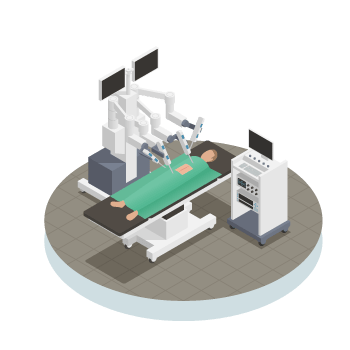
This proves that we can do complex operations efficiently with reduced side effects, pain risks, or blood loss. Likewise, post-surgery recovery is easier, faster and quicker. Moreover, the best part is the AI-powered information on the patient’s present situation, available to surgeons in real-time. This has helped to reduce doubts in patients, especially regarding surgery under general anaesthesia.
5. Enhanced Mental Health Support and Human Abilities
In addition, service robots from ML implementation can handle daily tasks and keep the company of patients. Many dedicated companion and conversational robots are there that carry out necessary tests and checks like blood pressure, sugar levels, controlling temperature, and even taking pills.
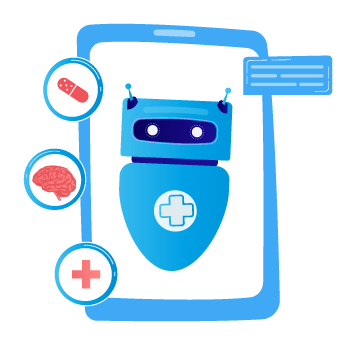
In addition, there are robots developed to help depressed patients via their in-built analytic capabilities. With these capabilities, they can analyze the mood of the patients and help them feel more positive and healthy. This is one of the top benefit of chatbots in healthcare.
6. Scheduling Appointments
As you have read above, virtual assistants for healthcare applications are great for communicating with possible future patients. Hence, these chatbots are effective in particular if it comes to booking visits. For example, patients can schedule an appointment with a medical specialist online immediately.
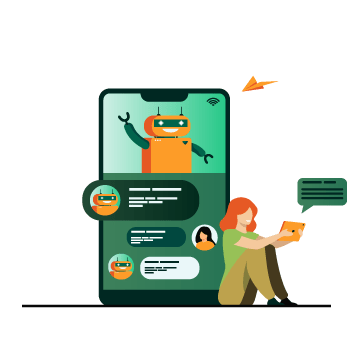
Furthermore, chatbots are designed to match patients with the relevant doctors and keep track of all their follow-ups and visits if needed. Now, let’s move to the risks and challenges of Chatbots in healthcare.
Major Challenges of Chatbots in Healthcare
Well, it goes without saying that there are a range of advantages of chatbots in healthcare. However, with the benefits these bots offer, there are some challenges as well.
We shall be going through top chatbot implementation challeneges, these are, as mentioned below:
1. Updating Regulations
There are tons of privacy laws and strict confidentiality rules which secure medical records across the globe. Moreover, healthcare systems can enable data sharing with AI systems, in line with legal regulations for AI. Indeed, there is a need for compliant rules on medical data recovery with identity protection. The major challenge that comes with this is logistical, and it’s endless. So, medical institutions ensure strict compliance with regulations that are accountable for patient data recovery and use. This is the most viable way to gather accurate, high-quality medical data for AI technologies.
2. Human interventions
In this digital era, a good number of patients and many medical professionals have doubts about AI. For example, radiologists do not want robots to take over their jobs. Similarly, patients do not want to abandon themselves to machines.
In addition, the trust issues of patients often don’t allow devices to deal with their health concerns properly. It won’t be easy to develop an AI-driven health care system without resolving these concerns of the public. AI should be seen as a helper designed to help healthcare practitioners to execute their diagnostic roles. Thus, the right education on the topic being provided is the key to the public embracing AI-assisted medical practices.
3. Data Digitization and Consolidation
Indeed, Artificial Intelligence (AI) projects are the garbage-in-garbage-out principle. It is practically impossible to get results without massive chunks of data being fed into the AI systems. This is the reason why it is essential to source top-notch high-quality healthcare data – a move that has become increasingly complicated over the years. The complexity is connected to the unorganized and fragmented health data spread across multiple data systems and organizations.
In addition, it is witnessed that patients change healthcare providers and insurance providers too frequently, making data acquisition a challenge.
To digitize or combine these data in some nations where low quality and isolated data systems are used is becoming more challenging. However, in the US, the situation is slightly better, with moves to fasten the digitization of the healthcare industry. Still, the quality of digitized information is not very good. For example, according to eClinical Solutions LLC, one of the biggest record-keeping software giants in the system had a flawed system. As a result, it puts patients at risk.
With digital record systems, improved accuracy and efficiency is guaranteed in the healthcare industry. This is why healthcare providers must perfect the digitization and consolidation of medical data. It is the only way to feed Artificial Intelligence (AI) with the information needed to deliver precise analysis and drive efficient processes.
 Check this in-depth How to Create a Healthcare App in 2022: The Ultimate Guide Check this in-depth How to Create a Healthcare App in 2022: The Ultimate Guide |
|---|
Potential Risks of Chatbot in the Healthcare System
With the various chatbot healthcare use cases, there are also some risks. Let’s look at them below:
1. User Privacy
User’s privacy is a serious concern regarding patient data recovery. While researchers have measures to protect patient data, there are malicious hackers out there trying to get access at all costs. For example, if Google can have privacy and patient data issues, then it means no one in AI should overlook privacy issues. Another way privacy is at risk with Artificial Intelligence development is the system’s capability to foretell patient information, even when the algorithm has not been fed with the exact such data.
The users of your software product may feel opposed to sharing their personal information with your chatbot. However, regarding security, nobody wants their private data to be exposed, and as a business owner, what can you do to address this challenge?
The first option is to execute healthcare data safety measures to ensure that your healthcare mobile application is immune from cyber-attacks and system errors. Then, after continuous testing of your security system, you make sure that it is reliable for patients.
Moreover, by developing a “User Privacy” page, you should talk to your user. Tell them about the safety measures you implement and be honest about the potential risks and address them. Moreover, let people sign a user consent, where you outline safety rules and regulations to make your users feel protected.
2. Errors and Injuries
AI-enabled chatbots are prone to errors, which eventually leads to patient injury or other significant problems. For example, a patient can take the wrong medicine or a high dose of medicine recommended by the AI-enabled chatbot system, leading to more questions. Likewise, the AI-driven radiological scan can miss a tumour. As a result, the wrong allocation of a hospital bed, medicines, or treatments based on Artificial Intelligence (AI) predictions can lead to injuries and relapse. More significant problems with AI-related errors have the potential to be far-reaching. Ample patients could suffer from just one error. Likewise, no one will take it lightly, hearing that their loved one suffered a setback because of a computer error.
3. Inequality and Discrimination
AI is not immune to bias. The most distant hint of discrimination is always reflected in the results. For occurrence, when data sourced from academic medical centres is fed into Artificial Intelligence (AI) systems, such a system may struggle to benefit or treat populations from other areas apart from academic medical centres. Furthermore, speech-recognition AI-enabled chatbot systems in deciphering notes may reduce the AI’s efficiency when the provider is of gender or race, a minority in the training data.
4. Professional Reshuffling
If AI technology is completely implemented, it is possible to experience shifts in the medical profession. Some learners’ opinion on the widespread use of AI reducing human knowledge and capacity over time is gaining ground. According to the learners, it may get to a point where providers can practically control AI errors or advance medical understanding in the healthcare industry.
Conclusion
Indeed, in the future, we’re going to see more comprehensive chatbots solutions emerge on the market. The most innovative and advanced chatbots will combine many of the benefits mentioned above. Healthcare development solutions with chatbots can be untrustworthy, ineffective, or unsafe for user privacy. However, it can also become a life-saver for HIV/AIDS, diabetes, cancer patients, a self-care coach, a doctor’s assistant, or an elderly care provider. This proves that chatbot app development is very necessary for providing mass treatment advice and guidance.
Indeed, there are risks and challenges, but still, it is clear that robotics and AI bring considerable benefits to the global healthcare industry. The IoMT (Internet of Medical Things) and (artificial intelligence) AI-driven tools have shown significant success, especially in human lives. I hope you now know the top benefits, risks and challenges of chatbots in the healthcare industry. If you still have any doubts about these things you can, contact us.
We, at NimbleAppgenie, have our standard practice to develop robust, faster, and more efficient AI-enabled chatbot products. In addition, we are an extremely professional healthcare app development company, who provides innovative development services to companies globally.
FAQ
The benefits of healthcare chatbots are, as mentioned below:
- Reduced Waiting Times
- Scalable Customer Service
- Timely Medical Advice
- Daily Medication Reminders
- Appointment Scheduling.
Chatbots have various use cases. Some of these are, as mentioned below:
- Automate your website support.
- Support customers inside the mobile app.
- Handle internal helpdesk support.
- Chatbots help to collect customer feedback.
- Bots help in order confirmation & track shipping.
- Chatbots handle refunds & exchange requests efficiently.
Some of the examples of healthcare chatbots are, as mentioned below:
- OneRemission
- Ada Health
- Florence
- Babylon Health.
Cost to build a chatbot for healthcare app highly depends on factors like complexity, size of the platform, tech stack, features, and so on.

Niketan Sharma is the CTO of Nimble AppGenie, a prominent website and mobile app development company in the USA that is delivering excellence with a commitment to boosting business growth & maximizing customer satisfaction. He is a highly motivated individual who helps SMEs and startups grow in this dynamic market with the latest technology and innovation.
Table of Contents




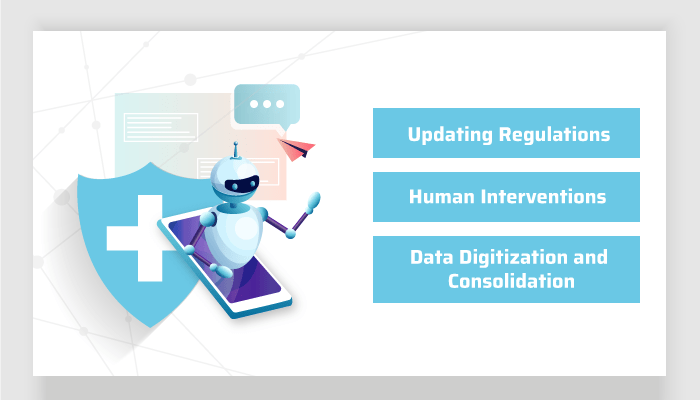
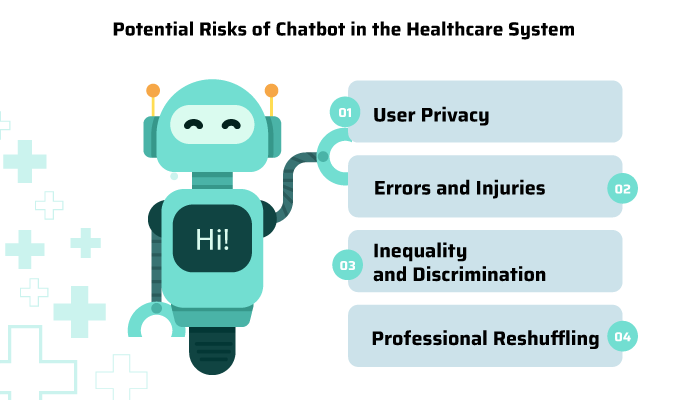
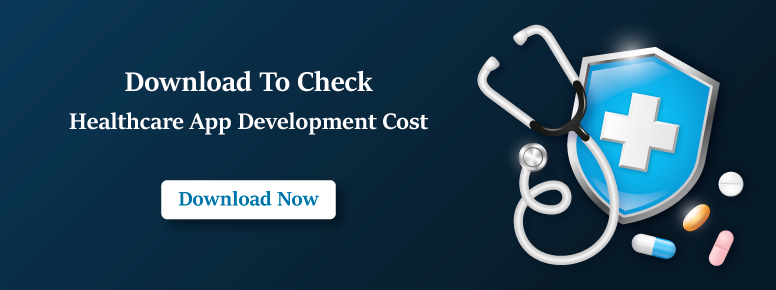




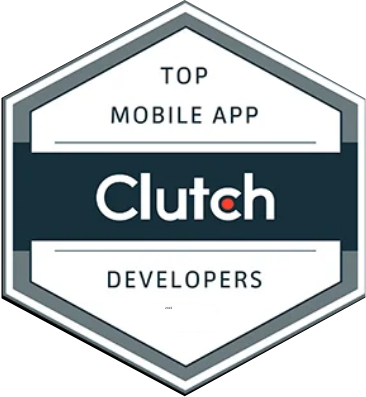
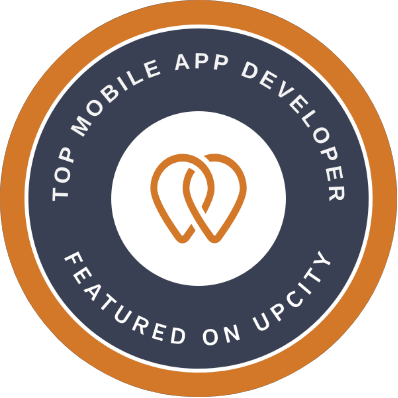
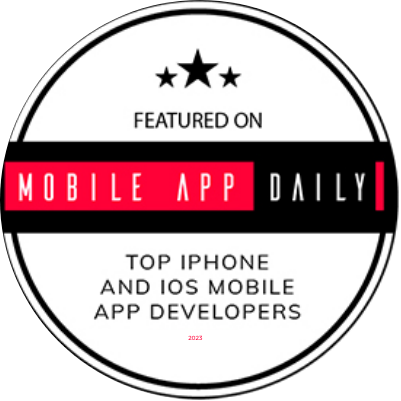
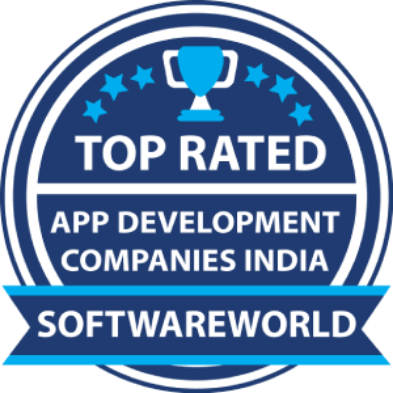
No Comments
Comments are closed.